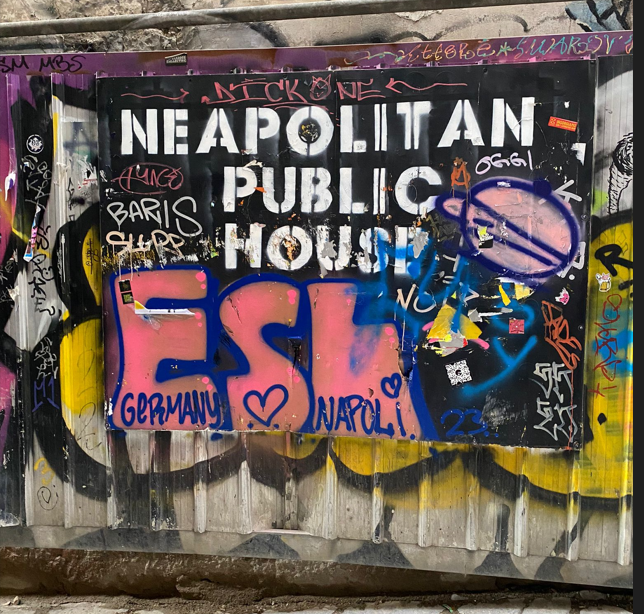
Finanziamento: PRIN PNRR 2022
Staff: Dr. Francesca Moro (PI) e prof. Antonia Soriente Università L’Orientale, prof. Margherita di Salvo (associated PI) Università Federico II
Unità di ricerca: Università L’Orientale, Università degli Studi di Napoli Federico II
Comitato scientifico internazionale: Barbara Turchetta (Università di Bergamo), Ada Valentini (Università di Bergamo), Eugenio Goria (Università di Torino), Suzanne Aalberse (University of Amsterdam), Franca Orletti (Università Roma Tre), Gerardo Mazzaferro (Università di Torino)
Settore ERC: SH6
Data inizio: 30/11/2023
Data fine: 30/11/2025
Costo totale: € 262.000,00
Importo finanziato DSU: € 120.056,00
Abstract:
HELLO CAMPANIA is a project about heritage languages in Campania. Heritage languages are the languages spoken by immigrant communities.
The project has three main objectives:
- to provide the first sociolinguistic study on HLs in Campania in order to describe the forms of migration-induced multilingualism;
- to describe the multilingual language practices of migrants with respect to the choice of Italian, the local dialect and their HL in order to investigate how multilingual speakers strategically make use of linguistic resources, and how these practices relate to external linguistic variables (gender, level of education, ethnic origin, kind of social network, mother tongue, segregation index);
- to carry out the first qualitative and quantitative description of a HL in Italy, starting from one single case study, the one of Filipino in Campania to investigate contact-induced language changes.
The project will fill the current information gap on immigrant languages in Campania, adopting an innovative bottom-up approach that is based on different subfield of linguistic research (namely sociolinguistic, language acquisition and language contact).
Sito internet: https://sites.google.com/view/prinpnrrhellocampania/home-page
Structure and Partner
HELLO CAMPANIA consists of two research units: the first one is at University of Naples “L’Orientale” and is coordinated by Francesca Moro; the second one is at Federico II and is coordinated by Margherita di Salvo. The two units are linked together by their interest on heritage languages and immigrant communities but they look at HLs from different perspectives.
The research carried out at L’Orientale is relevant from a both scientific and societal point of view, as in-depth studies on HLs in Italy are still lacking. The research is also relevant for the Filipino community to raise awareness on issues such as bilingual acquisition and the importance of HL maintenance, as heritage speakers represent a national resource (Polinsky & Kagan 2007:389, Carreira & Kagan 2011). Furthermore, the project bridges a gap between the academia and the local community, as the University L’Orientale has recently activated a Filipino language course, which may be of interest for 2nd and 3rd generation speakers willing to re-learn their language.
The research carried out at Federico II aims at catering for the specific needs of the inclusion policies for immigrants in Campania, for whom achieving integration is a priority. Although migrants adopt strategies to integrate themselves on a daily basis, they do require support in order to achieve full integration. The support should be diversified according to the type of migration, the ethnicity, and the characteristics of each individual. All these parameters will be analyzed in relation to language competence in HLs, Italian and the local dialect to promote the best practices for social, cultural, economic and political inclusion. The project is relevant because it will fill the current information gap on immigrant languages in Campania.
The project team is made of:
a) Dr. Francesca Moro (PI) and prof. Antonia Soriente at RU L’Orientale, and Dr. Margherita di Salvo (associated PI) at RU Federico II;
b) the researchers who will be recruited in the project (one position at L’Orientale and one position at Federico II);
c) two consultants, one at L’Orientale for the transcriptions and translations; one at Federico II for the creation of (i) website that share a selection of fieldwork materials (ii) dedicated profiles on social media (Facebook, Youtube, and Instagram) in order to have a quick means of sharing the activities of the research group; the consultant at Federico II will also deposit data in digital open access archive (such as Paradisec or The Language Archive).
d) an International Scientific Board, made up of experts from various disciplinary sectors, who will contribute to the success of the project, through scientific exchange and specific knowledge of some themes connected to the research.
